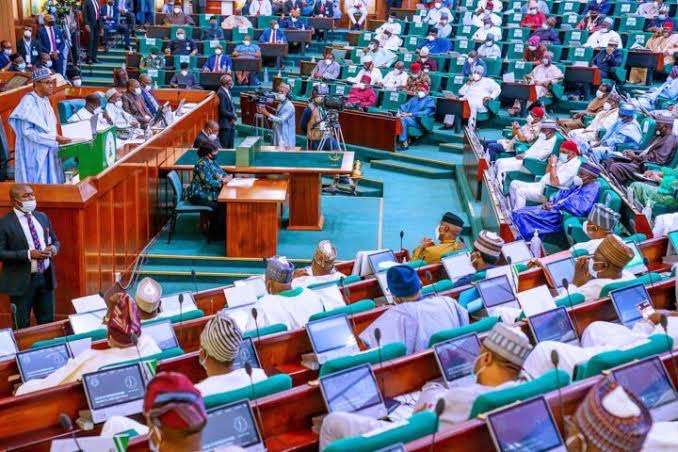The House of Representatives has mandated its Committee on Renewable Energy to investigate various Ministries, Departments, and Agencies (MDAs) involved in the investment, procurement, and receipt of grants aimed at developing the renewable energy sector in Nigeria.
This investigation, covering the period from 2015, is to be completed within four weeks, with a report submitted to the House for further legislative action.
The decision was made following the adoption of a resolution titled ‘Need to Investigate Investments in Renewable Energy Sector and Foreign Grants received from 2015 till date,’ sponsored by Jesse Okey Joe Onuakalusi, the lawmaker representing Oshodi-Isolo II Federal Constituency, Lagos State.
A document containing the resolutions made on Thursday noted that the lawmakers “mandate the Committee on Renewable Energy to investigate Ministries, Departments, and Agencies (MDAs) of the government associated with the investment, procurement, and receipt of grants meant to develop the renewable energy sector from 2015 till date and report within four (4) weeks for further legislative action.”
The House noted the essential role of electricity in the economic and social development of every nation. It also acknowledged the significant challenges posed by poor electricity generation and distribution to the country’s economic development and the living conditions of its people.

According to the lawmakers, successive governments since 2015 have made substantial investments and attracted multimillion-dollar foreign grants to the renewable energy subsector of Nigeria’s power industry to create a viable and sustainable alternative energy supply.
They noted that in December 2023, the World Bank approved a $750 million facility to boost renewable energy in Nigeria, with the goal of providing over 17.5 million Nigerians with improved access to electricity through distributed renewable energy solutions.
They also noted that in 2020, the federal government launched a $200 million renewable energy project, tagged ‘Nigeria Electrification Project (NEP),’ aimed at providing off-grid energy to over 500,000 people across 105,000 households in rural communities, funded by the African Development Bank (AfDB).
The lawmakers further argued that despite attracting over $2 billion in renewable energy investments in the past decade, as reported by the Rural Electrification Agency in 2023, there has been no noticeable improvement in the sector.
The House of Reps was alarmed that the dysfunctional electricity generation and supply system persists, contrary to the objectives behind government investments and grants aimed at developing the renewable energy sector.
In 2022, The federal government of Nigeria and US-based renewable energy company Sun Africa, signed an agreement for the engineering, procurement, and construction (EPC) of 5,000 MW of solar generation and 2,500 MW/h of battery energy storage power plants.
The power plants will be situated across the country’s six geopolitical zones and will help provide clean and affordable electricity to over 30 million people. The Federal Government said the project would be funded with a $10 billion investment from the United States government. Part of the funds was a $1.5 billion loan Nigeria obtained from the American export credit agency Exim Bank.
It was also exclusively reported that the federal government plans to provide subsidy to developers and operators of solar mini-grids in unserved and underserved areas in the country. The subsidy will be provided through a World Bank approved loan of $750 million under the Distributed Access through Renewable Energy Scale-up (DARES) project.
Olaitan Ibrahim